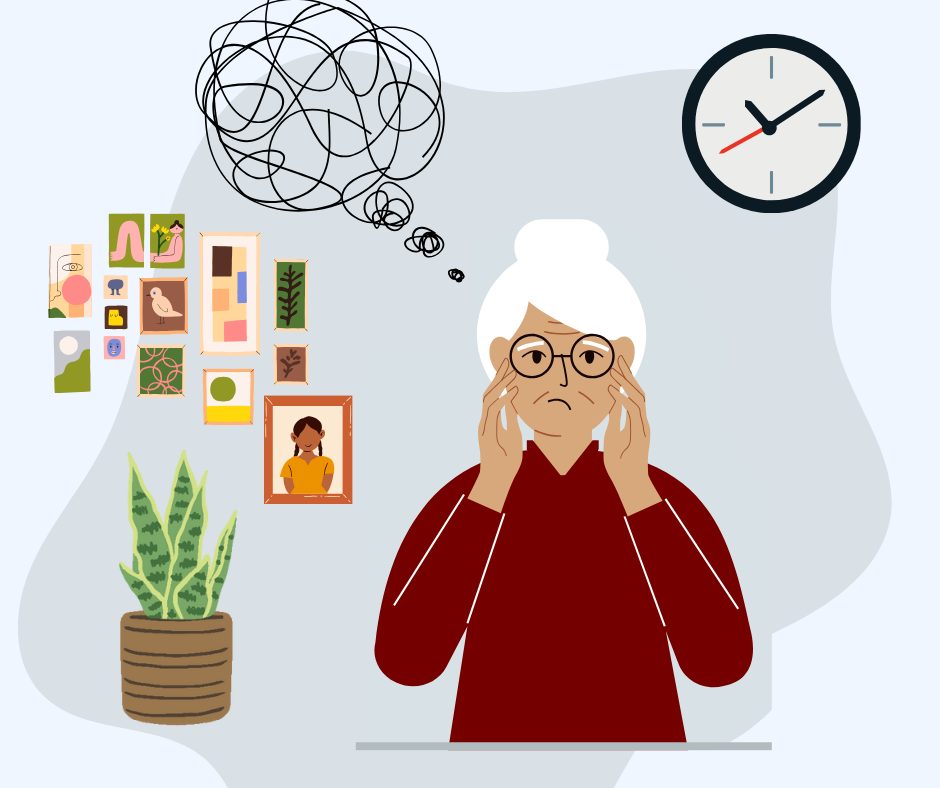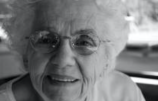Aging With Anxiety
Aging With Anxiety

Anxiety is having a moment. It only takes a few minutes reviewing headlines about geopolitical events, economic hardship, climate crisis, and social division to feel the pangs of unease and apprehension. As research on chronic anxiety accumulates, it paints a rather discouraging picture of how severe and sustained anxiety relates to compromised immune, cardiovascular, and cognitive health.
It’s enough to make you anxious about anxiety.
Interestingly, we hear fewer alarm bells going off about older adults experiencing anxiety. It may lead people to erroneously assume it either doesn’t exist in this age group or isn’t as severe relative to the anxiety-riddled Gen Z.
Anxiety most certainly does exist for older adults and many in this age group will tell you just how derailing it can be. But detecting it in the first place can be a challenge for some. Many older adults I encounter in my clinical practice wonder, is my anxiety normal? How do I know when I have a problem?
Let’s get a few things straight about anxiety and maybe even attempt to repair its bad reputation. This emotion’s primary job is to anticipate future possible threats and mobilize us to avoid them or figure out a way to deal with them. This continues to be the case in late life. It makes us think and behave in ways that keep us safe in our golden years. It does this instinctually and effectively and as proof, look no further than your living, breathing self.
Anxiety is the emotion that nudges you to call your doctor when that suspicious mole on your arm is starting to look bigger. It also encourages you to stop driving when your vision is declining or to make sure you have enough money to pay for health care and related expenses as you age.
If all of this is sounding, well, normal that’s because it’s how most older adults experience anxiety. It’s like a well-intended party guest who tells you to take the crisp-looking appetizers out of the oven before your party features a bonfire.
A subset of older adults, however, experience more frequent and overwhelming anxiety that may lead to a diagnosis of an anxiety disorder. Anxiety becomes disordered when it starts to occupy more of your day-to-day life: worry becomes incessant, focusing on other things can be a challenge, sleep can be disrupted, it’s hard to relax or wind down, and important experiences are avoided or that much harder to enjoy because of anxiety. In this case, anxiety is the party guest who’s talking too loud, too much, and sees everything as a threat.
Interestingly, the prevalence rates of anxiety disorders tend to go down as people age. It’s part of a broader trend suggesting mental health improves in later life, to a certain extent. That being said, it’s not insignificant that an estimated 10% of adults over age 60 are dealing with an anxiety disorder. This number balloons to nearly 30% among older adults dealing with multiple chronic or acute medical issues, or those who reside in personal care homes.
Although older adults with anxiety disorders share many of the same symptoms as their younger counterparts, the nature of the concerns can be somewhat different. They're less likely to report feeling anxious about their careers or parenting and more likely to be worried about their health and family stressors.
But here’s some good news. Effective treatments for late-life anxiety exist, many of which are non-pharmacological. Cognitive-behavioral therapy is a leading, evidence-based psychological treatment for anxiety in late life. In case you’re leery about therapy or can’t afford it, there are also self-help options too. If you’re concerned you may have an issue with anxiety, talking with a medical or mental health professional is a great place to start.
As someone whose full-time job is helping people reduce their anxiety, I’m often reminded of the very human tendency to worry about the unknown and assume things will be worse than they might actually be. I’ve also observed that when anxiety is translated into helpful forms of preparation and risk mitigation, we can detach from imagined catastrophes and get back to living our lives. When we can work with it, anxiety can be a part of living a big, full, and rewarding life. No matter what age.




















